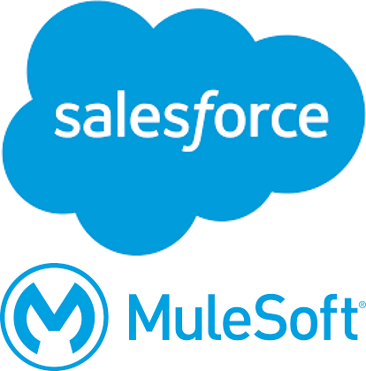On March 20th, 2018, Salesforce announced a deal to acquire MuleSoft (NYSE: MULE) for $6.5 billion. The deal represents a 36% premium over MuleSoft’s current share price. Salesforce’s shares were relatively flat during regular trading and dipped slightly (-2.3%) during after-hours trading, while MuleSoft’s shares jumped 27% in regular trading and an additional 4.6% in after-hours trading.
For context, Salesforce is a cloud computing company based in San Francisco with a market capitalization of over $90 billion. It generates revenue through a customer relationship management (CRM) product, which is broken down into many categories such as Commerce Cloud, Sales Cloud, Service Cloud, and Data Cloud. Its primary offering is Salesforce, which provides companies with an interface for case and task management. The Salesforce customer portal allows customers to track their own cases, includes a social networking plug-in, and provides analytical tools. Salesforce has been acquiring many emerging tech companies in an effort to expand from sales software and specialize in other product categories. For example, its current pipeline of transactions includes CloudCraze—a Chicago-based B2B commerce startup that Salesforce agreed to acquire earlier in March. This deal is Salesforce’s largest acquisition in its history and its 51st to close since 2007.
On the other hand, MuleSoft is a SaaS company also based in San Francisco that integrates business data across devices, linking business apps, databases, and corporate IT infrastructure into a unified system. Some of its customers include Barclays, Coca-Cola, and Anheuser-Busch. It was founded in 2006 and has a market capitalization of approximately $5.5 billion. In 2017, the company generated $296.5 million in revenue, up 58% YoY, and projected sales to increase to $410 million in 2018. MuleSoft was backed by venture capital firms, such as Cisco Investments, New Enterprise Associates, Lightspeed Venture Partners, Meritech Capital Partners, Bay Partners, and Hummer Winblad Venture Partners, but achieved unicorn status in 2015 largely because of Salesforce Ventures, which led a $128 million round for the company at a $1.5 billion valuation. MuleSoft went public last year and raised $221 million. Since then, its market capitalization has increased almost $2.5 billion.
This deal represents an interesting and potentially valuable step in Salesforce’s plan to move from selling only sales software. By acquiring companies that specialize in other products, it has the ability to gain market share in emerging technology subsectors. One way it could use MuleSoft’s technology is in its Salesforce Integration Cloud, which lets customers access corporate data wherever it is stored. Many of Salesforce’s other products would also benefit from the integration services that MuleSoft provides and create a more valuable product for Salesforce’s customers.

